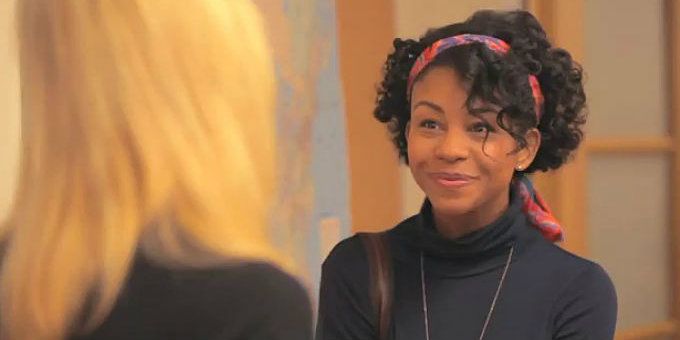The Unwritten Rules: What it Means to be a Black Woman in Corporate America

Meet Racey Thomas. A Brown University graduate trekking through corporate America as the only black woman in an office of colleagues ranging from condescending bosses to ignorant co-workers.
As the protagonist of the web series The Unwritten Rules, we follow Racey (portrayed by Aasha Davis) through the oh so familiar work place situations many Black women face in the corporate world. From the questions about the braids in her hair and the oxtails she eats for lunch The Unwritten rules manages to show the world the experiences of a Black woman in corporate America without the filtering and watering down by production companies and screenwriters that know nothing of our experience.
Based on the book 40 Hours and an Unwritten Rule: The Diary of a Nigger, Negro, Colored, Black, African-American Woman
The types of issues we face in corporate America are seldom spoken upon because many of us have just accepted that this is the way things are. And since we don’t speak up we're expected to brush off underhanded racist comments such as it being gross that we don't wash our hair everyday. We have to be conscious of what we say and how we say it in fear of being labeled the angry black co-worker which is something Racey speaks so candidly about in The Unwritten Rules.
Read: A Black Woman's Perspective on Being In The Workplace
What is compelling about this show is that it helps to redefine racism. There are so many people who are ignorant enough to believe that because the attitude towards racism as whole has shifted from acceptable to intolerable, racism is not as big of an issue as it once was. Our dear Racey negates this ideology by painting a picture of how being successful is still not enough for you to no longer have your race be a factor in how you are treated or regarded by others.
While Racey struggles with fitting in with her non-Black co-workers, she is also faced with a disconnect between herself and the other Blacks who work in her office that are less professionally accomplished. In an episode where she has lunch with a few mailroom associates and is called a “whack girl” (a term for white black girl), Racey exclaims in her confessional “Why is my Blackness too much for the people upstairs and not enough for the people downstairs?”. This draws attention to another seldom talked about experience, that of the proper-speaking, educated Black woman who gets flack for being so.
I appreciate that this series has made an effort to spotlight the unique experiences of Black women outside of the one-dimensional molds that could easily be portrayed by women of any color. Too often have our stories been told by producers and screenwriters who are unfamiliar with the complexities of being a Black woman.
It’s about time that we express ourselves without being filtered. We should be able to put forth our thoughts and opinions without the fear of being viewed negatively. So here's to Racey and all of the other Racey's in corporate America who have so gracefully dealt with ignorance in the workplace without sweating out your edges, may your voices finally be heard.
Catch The Unwritten Rules on their Inkspot Entertainment YouTube channel. The series is currently raising money to fund season 2 of the series on Indie Gogo.
Related:
the Unwritten Rules: Episode 8 "Just A Group Of Us"I Don't Listen to Current Hip Hop...Why Are You So Shocked?
Franchesca Ramsey: A YouTube Sensation Black Girls Can Believe In
LaChelle is an aspiring novelist and songwriter. As an avid reader and social commentator, her mission is to engage the minds of others through her artisry. Follow her on twitter at @_theELLE_

No comments: